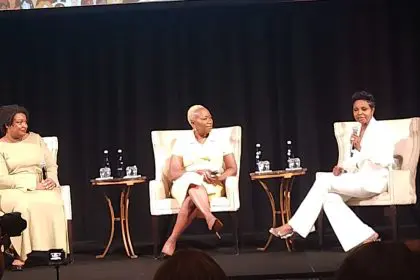Deciding when to get married is a deeply personal choice, influenced by many factors including cultural norms, personal goals and emotional readiness. While there’s no one-size-fits-all age, waiting until after your 30s to tie the knot can offer numerous benefits. This article explores five compelling reasons to consider delaying marriage until after you’ve hit the 30-year mark. From enhanced personal development to improved financial stability, we’ll dive deep into why waiting might just be the wisest decision you can make.
1. Greater self-discovery and personal growth
The twenties are often a time of exploration and self-discovery. It’s a phase where individuals experiment with different careers, passions and relationships. By postponing marriage until after 30, you allow yourself significant time to better understand who you are and what you truly want from life. This period of self-growth is crucial for developing independence and self-awareness — traits that are invaluable in a healthy, long-lasting relationship.
Building a strong sense of self before marriage
Investing in your personal growth before getting married can lead to a more fulfilling life and partnership. You’ll likely enter into marriage with a clearer sense of your values, goals and boundaries, which can foster a stronger foundation with your partner.
2. Enhanced career and financial stability
Marrying later often means more time to focus on your career without the added responsibilities that come with marriage. This can lead to higher positions and increased earnings, which collectively contribute to financial stability. Financial challenges are among the top reasons couples struggle, so entering marriage with a solid financial base can alleviate common stresses and strains.
The financial benefits of marrying later
Building your career first also allows for both partners to be financially independent, reducing the economic pressures that can burden a marital relationship. This independence not only strengthens individual confidence but also enriches the partnership.
3. Established relationship skills
By 30, most individuals have experienced a range of relationships, which helps develop important interpersonal skills like communication, compromise and conflict resolution. These skills are vital for a healthy marriage. Experiencing different relationship dynamics can also teach you what you do and do not want in a partner, helping you make a more informed choice when it comes to settling down.
Leveraging past relationships for a healthier future
These past relationships serve as practice for the real challenges that marriage can bring, equipping you with the tools needed to build a lasting relationship.
4. Readiness for commitment
Reaching 30 typically brings a more mature outlook on life and relationships, often accompanied by a readiness to commit more seriously. This maturity ensures that when you do decide to marry, it’s based on a well-rounded understanding of the commitment required.
Maturity and marriage: A better match
Maturity also enhances the quality of decisions one makes about selecting a spouse. Older individuals tend to be more selective, often leading to marriages based on compatibility rather than impulse.
5. Opportunity to build a diverse social network
Having a well-rounded social life before getting married can be beneficial. It gives you time to build a diverse network of friends and acquaintances, which can enrich your life and provide a supportive community for both you and your future spouse. Social connections can also provide emotional support, which can ease the transition into married life.
Social richness and marital success
A strong social network can prevent overreliance on your spouse to fulfill all your social and emotional needs, contributing to a healthier and more balanced relationship.
Reconsidering the right age to get married
While marriage is undeniably a beautiful and transformative journey, the timing of this profound commitment plays a crucial role in determining its long-term success and sustainability. Opting to get married after crossing the age of 30 offers a multitude of advantages that cater to both personal and mutual growth within a partnership. This phase in life allows for significant personal development, ranging from career progression and financial stability to the honing of essential relationship skills such as communication and conflict resolution.
As individuals mature, their understanding of commitment deepens, making them more prepared for the responsibilities that married life entails. By allowing yourself the time to grow independently, you not only cultivate a stronger sense of self but also enhance your ability to contribute positively to a partnership. Marrying later enables you to enter into the union with a clear and mature perspective, increasing the likelihood of a durable and satisfying marriage.
Ultimately, deciding when to get married is a deeply personal choice that should align with your individual goals, emotional readiness and life circumstances. By considering these factors carefully, you ensure that you are making the best decision for yourself and your potential spouse, paving the way for a fulfilling and resilient marital relationship.
This story was created using AI technology.
















